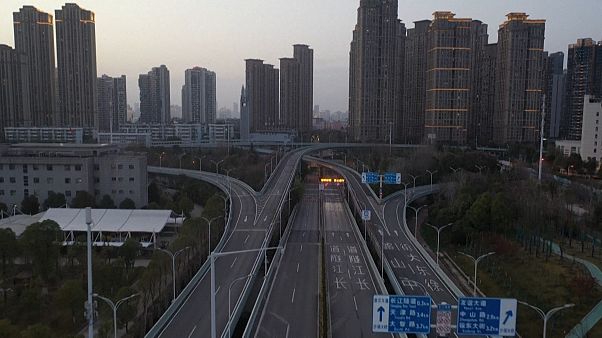
After my mother died on February 7th I gathered her valuables and photo albums and drove home to New York. But there wasn’t enough room in the car for everything I wanted to keep.
There were tchotchkes like a silly white ceramic salt and pepper shaker in the shape of Arab kings. It wasn’t my taste but it had been there my entire life so I wanted it. There was a box of birth certificates and other official documents from her parents and grandparents back in France. Her bike. She bought a wooden chair for five dollars at a garage sale, stripped off the hideous paint and discovered it was early 19th century Shaker; I didn’t want to let that go.
One more trip to Dayton was all I needed.
Her house sold faster than I expected. Closing is in a month. The buyers want to move in then. So I’d have to get my stuff out. My realtor was generous. She offered to pack everything up and store it for me until the end of the coronavirus crisis. But as a rule I prefer to do it myself. Things you care about get lost and screwed up when you leave them to others.
COVID-19 be damned, I packed up to drive from New York to Ohio.
It was going to be a cannonball run. Twelve hours from New York to Dayton, one day to pack, twelve hours back. I’d only need to get gas once each way. If I needed to urinate, I’d do it on the side of the Pennsylvania’s Interstate 80. As Gary Numan noted, the automobile is the epitome of social distancing.
Aside from the possibility of contracting the coronavirus, my plan entailed the risk of being trapped at some checkpoint or forcibly quarantined as lockdowns continue to spread. Ohio has a “shelter in place” order. There are rumors that nonessential travel verifiable by documentation has been prohibited. The White House wants anyone who leaves New York to self-quarantine for 14 days. As of this writing, however, the highways are supposedly open. But will they be on Friday?
I couldn’t sleep last night.
What if I got sick somewhere in western Pennsylvania or eastern Ohio? I wouldn’t have any clue where to go. Would I be able to drive the remainder of the way to Dayton? Would I get stuck there? If I were on my way back, would I be in good enough shape to make it back to New York? There were too many variables to feel good about making the trip.
It’s not like I am particularly risk-averse. I’ve filed conflict reporting, including from Afghanistan. But something kept telling me I was being stupid.
Then my grandfather spoke to me. Not literally. He died over 30 years ago. But I could hear him in my mind, telling me a story for the umpteenth time, so clearly that I re-remembered the timbre of his voice.
The story concerned his best friend.
When France fell to the Germans in 1940, the country was partitioned. The western Atlantic coast and northern France including Paris were subjected to direct Nazi occupation. The center and the south became known as the absurdly misnamed “Free Zone,” governed for the first couple of years of World War II by the treasonous collaborationist regime of Marshal Philippe Pétain. My grandfather and his family lived in the free zone. His boyhood best friend lived in Paris.
A member of the French Resistance, he learned that Jews and others deported to Eastern Europe would never return, that they were being mass murdered by the Germans. He determined to save his friend, a Jew living in Paris.
Using forged papers that could have gotten him shot on the spot had they been discovered, he illegally crossed the line of demarcation into the occupied zone and made his way to his friend’s apartment in Paris.
You and your family, he told his friend as they smoked together, must leave at once. I have arranged forged documents for you. I will take you over the mountains to Spain where you will be safe.
His friend trusted him implicitly. I understand, he said. Then he went to talk to his wife.
After a time, his friend returned to the living room to inform him that they would not be leaving with my grandfather. They had a beautiful rent-controlled apartment, nice furniture. He specifically mentioned a fine china cabinet. Holocaust rumors seemed so over-the-top. Perhaps, he told my grandfather, everything will be alright.
After liberation, my grandfather returned to Paris where he learned that months after their meeting, his friend, his friend’s wife and their two daughters had been deported to Auschwitz. They almost certainly were gassed upon arrival.
The apartment was bare, the door wide open. Someone, neighbors probably, had taken everything, even the china cabinet.
“My friend died over an apartment and some stuff,” my grandfather remembered. He was still angry. “Never die over stuff. Society can collapse in an instant. Accept the truth, pivot and never look back. It’s the difference between life and death. Never risk death over a stupid china cabinet.”
COVID-19 isn’t World War II and driving to Ohio is hardly on par with waiting out the Nazi occupation of Paris. Yet my grandfather’s lesson was pertinent. I nearly risked myself and everyone that I came into contact over stuff.
Stuff doesn’t matter. People matter.
I’m sure my realtor will pack everything up diligently.
(Ted Rall (Twitter: @tedrall), the political cartoonist, columnist and graphic novelist, is the author of the biography “Bernie.” You can support Ted’s hard-hitting political cartoons and columns and see his work first by sponsoring his work on Patreon.)
